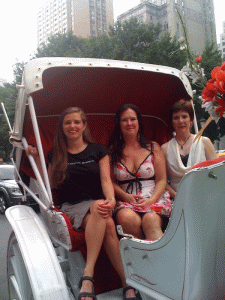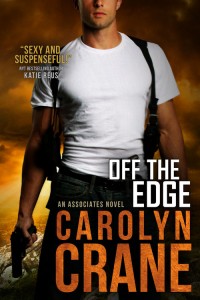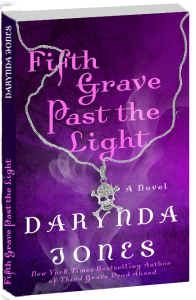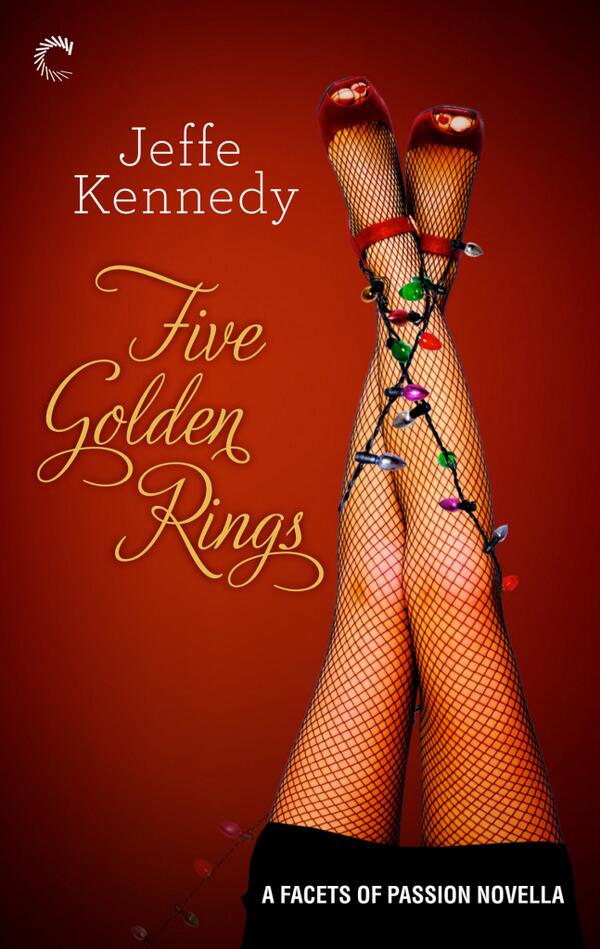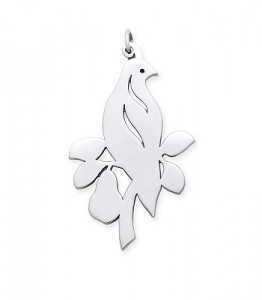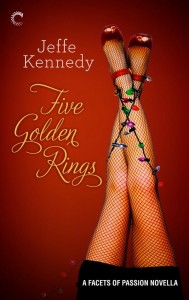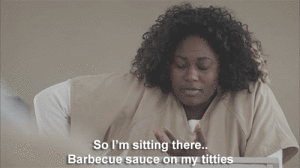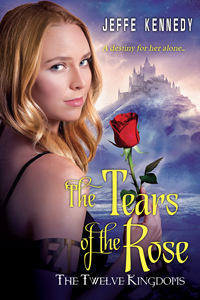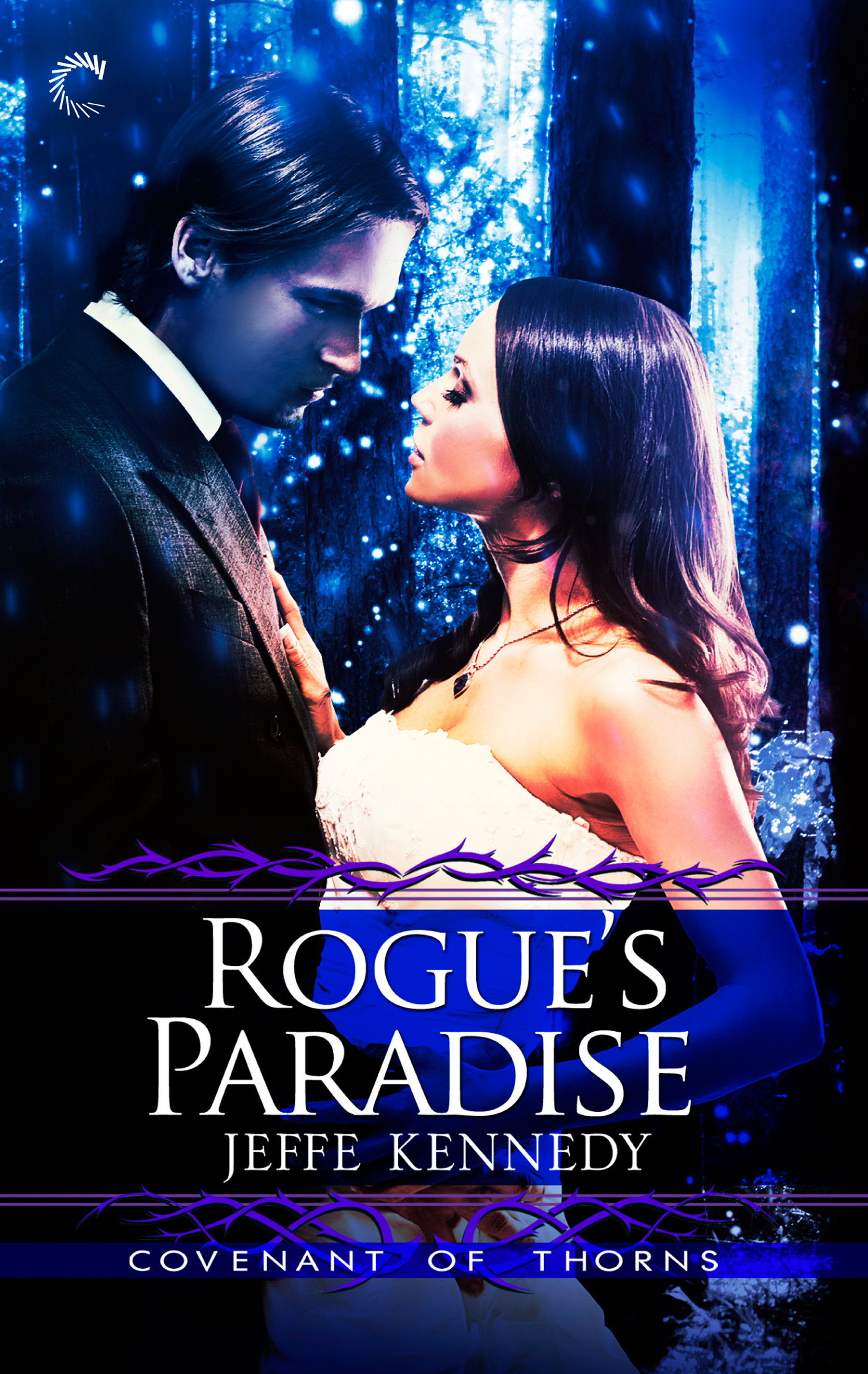 Longtime readers of my blog know that my mom has given me a Christmas ornament every year since I was born. These last few years, we’ve formed a tradition of shopping with my stepsister the day after Thanksgiving. Not big box store mob sale shopping, but at this lovely outdoor mall in Tucson. Our first stop is always Crate & Barrel, where I now get to pick out my own ornament(s).
Longtime readers of my blog know that my mom has given me a Christmas ornament every year since I was born. These last few years, we’ve formed a tradition of shopping with my stepsister the day after Thanksgiving. Not big box store mob sale shopping, but at this lovely outdoor mall in Tucson. Our first stop is always Crate & Barrel, where I now get to pick out my own ornament(s).
This year I spotted these sparkly castles – just perfect to remember that this is the year my Twelve Kingdoms books come out. I’m so in love with them.
Once again, however (this make two years in a row – eep!), I’ve decided not to put up a Christmas tree. Jackson, though no longer a kitten, is still wild to tear up any and everything he can. He’s also become keenly interested in climbing.
Uh huh. Exactly.
Also, we’re going on a bit of an odyssey this year. We’ll drive to Tucson for Christmas, then drive up the western slope over several days to Billings, Montana, for my stepson’s wedding on New Year’s Eve. We won’t be home until January 2, at best. Maybe later if the driving weather is bad, since we’ll return down the front range.
(For those who don’t know the Rocky Mountain region, the weather on the western side of the mountains is typically much warmer and drier than on the front range, the eastern side.)
Though we’ll have a house sitter, that’s still a lot of opportunity for Jackson to wreak havoc. And, by the time we get home, I won’t want to deal with TONS of clean-up. Last year, however, I found I really missed getting out all of my ornaments, revisiting all those Christmas memories. So this year, I plan to do a lot of garlands and suspend the non-breakable ornaments from those.
(I haven’t SEEN Jackson climb walls, but I wouldn’t be surprised if he did.)
One of my nephews has gotten into juggling lately, so we’re getting him a copy of Robert Silverberg’s Lord Valentine’s Castle. It might be a bit dense for him, but he’s struggling with adolescence and I think the themes of being dispossessed and discovering who you are will speak to him. Plus, juggling!
I recall that book for the way his learning to juggle gave Valentine the keys to handling his problems. It’s been a long time since I read it, so forgive me if I get the details wrong, but I recall the concept that, while keeping the balls in the air is part of the point, dropping one isn’t the end of the world.
I think about this sometimes because I often use juggling as a metaphor for keeping up with everything I’m doing. We all do, really, referring to “dropping the ball.” (Or is that a sports metaphor? Brilliant, really – the metaphor that works for both sportsing types AND theater geeks!) The problem with that is, I get so focused on keeping those balls going, adding in more, concentrating on catching and throwing, that it’s easy to lose the sense of fun.
And yes, juggling is fun.
Also, occasionally dropping a ball is part of the game.
If there wasn’t the possibility of dropping a ball, then juggling wouldn’t be interesting. The real joy, too, is when you get them all flowing.
Like magic.
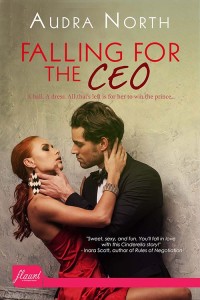 Can you believe Christmas Day is one week away??
Can you believe Christmas Day is one week away??
